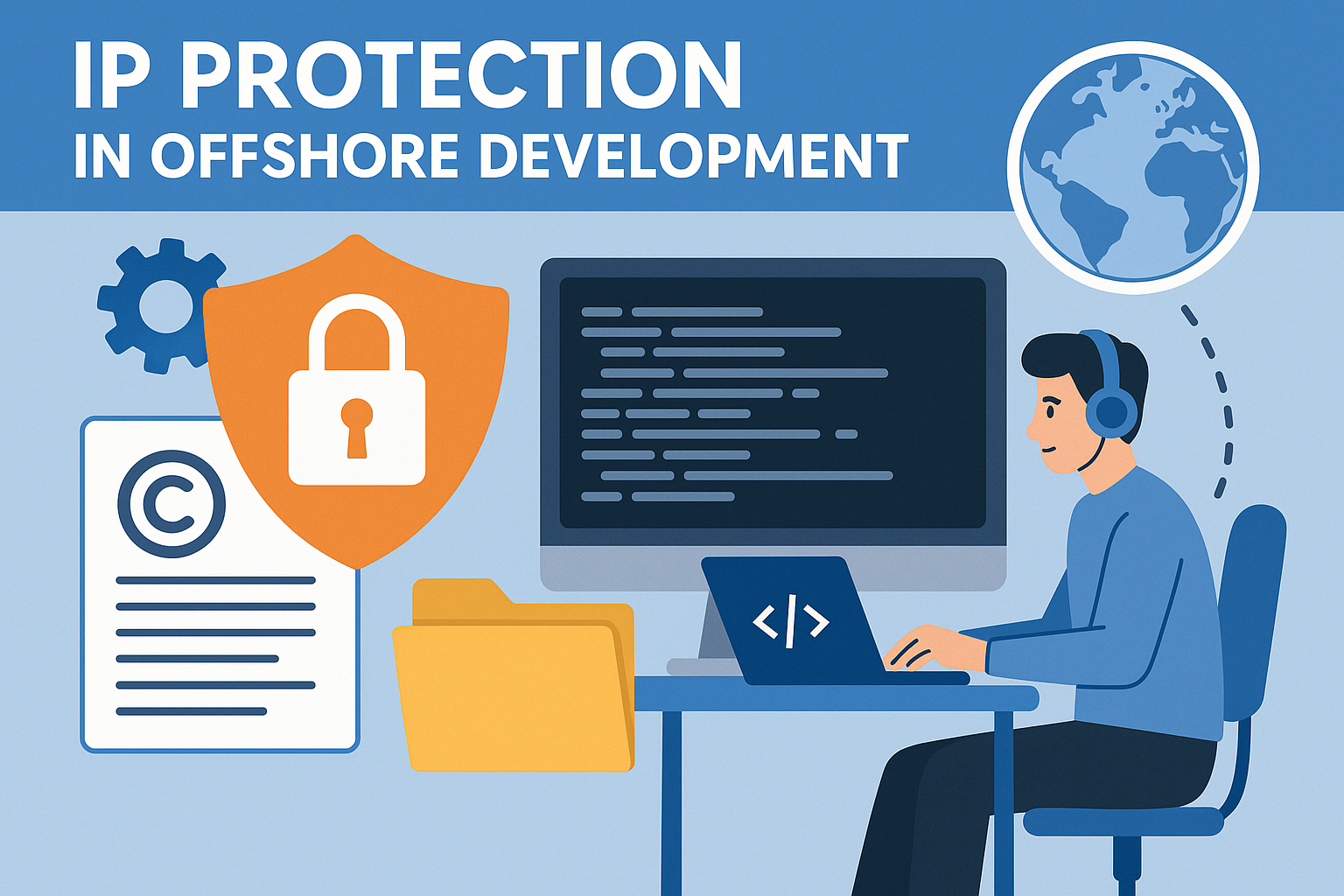Innovation thrives on trust. Offshore doesn’t mean off-guard.
The Strategic Importance of IP in Global Software Delivery
Intellectual Property (IP) is a company’s digital DNA—its core algorithms, architecture, and proprietary data. When outsourcing development, especially offshore, ensuring IP protection is not just a legal checkbox—it’s a strategic imperative.
In an interconnected world where code crosses borders and cloud infrastructure is decentralized, protecting your innovation from misuse, theft, or leakage becomes complex—but essential.
Key Threat Vectors in Offshore Environments
Lack of Standardized Policies
Offshore vendors may operate in regions with varying IP laws, enforcement standards, or business practices. This inconsistency introduces legal ambiguity.
Employee Turnover
High attrition rates in offshore teams can risk IP leakage if offboarding and access revocation aren’t tightly managed.
Shadow IT & Informal Communication Tools
Use of unsanctioned platforms for file sharing or collaboration can bypass enterprise-grade security, increasing exposure to data breaches.
Ambiguity in Ownership
Poorly defined contracts may not clearly assign ownership of deliverables, code, or jointly developed IP.
Proven IP Protection Measures
Contracts & Legal Framework
Sign airtight NDAs, IP assignment clauses, and jurisdiction-specific agreements.
Include work-for-hire language to clearly transfer ownership of all work products to the Client.
Secure Infrastructure
Enforce zero-trust access models, VPNs, and role-based access controls (RBAC).
Use encrypted storage, Git workflows with permission controls, and activity logging.
Governance and Compliance
Regular IP audits, code reviews, and access reviews.
Ensure alignment with international frameworks like GDPR, SOC 2, or ISO 27001.
Education and Awareness
Train offshore teams on the importance of IP protection and the legal consequences of negligence.
Promote a culture of ownership and ethical responsibility.
Trust Without Blindness
Building an offshore team is not a leap of faith—it’s a calculated partnership. Trust must be earned and reinforced through robust legal, technical, and cultural mechanisms.
With proper diligence and consistent enforcement, you can scale development globally without compromising the innovation that sets your business apart.
Conclusion
IP is not just protected by contracts—it’s safeguarded by systems, reinforced by culture, and monitored by process. If you can’t protect what you build, you’ll eventually lose what you own.





